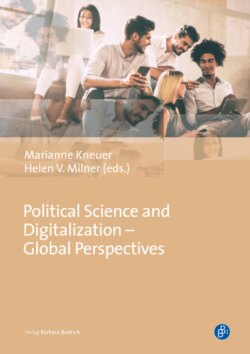Читать книгу Political Science and Digitalization - Global Perspectives - Группа авторов - Страница 31
На сайте Литреса книга снята с продажи.
2.3 Content and institutional aspects
ОглавлениеThe digital revolution in the political science curricula is challenging for universities and professors because they face substantial changes in the contents they teach. For example: how to teach the topic of democracy and power in the Trump Era? How to deal with the lack of theoretical references to explain Brexit or the crises of the European Community? How to teach about sovereignty and democracy against the power of crowds at the Arab Spring? How to teach new public management in the context of big data? in other words, how to update political science curricula in a fast-changing world?
There is not a simple answer to these questions. At least there are three clues to help answer these questions and produce updated contents for political science (Mounk 2018, Mosco 2017):
• Markets forced digitalization;
• Digitalization forced to open education;
• Digitalization forced for interaction.
The digitalization of contents creates a fast, massive exchange of new knowledge impossible to capture in a single lecture. However, this digitalization needs a curator. This curator is becoming the teacher, the theoretical background and the students’ criteria. All of these elements are pushing the markets to receive better education, high quality knowledge at low cost. The digitalization also forces to open education. New online repositories in every university, for every subject, by every teacher that uploads extra material at a DropBox account. This culture of sharing, collaboration and peer to peer tasks that were explained by Wikinomics (Tapscott & Williams 2008) is the force that changes the learning perspectives of teachers and students. We are witnessing a clash of civilizations among the X generation against the millennia one. Nowadays students’ interaction with knowledge flows at a different speed and paths. It is easy to find information and data, but it proves to be much more difficult to transfer it into knowledge. Digitalization of contents [47] has forced interaction between these two generational cultures, and this can result to be an advantage.
The digitalization of teaching in political science is an enormous task in Mexico. There is no promotion of such strategy, no financial resources allocated to provide support at any university or program related to it. Although it is an important matter to improve teaching strategies and modernize students, it is not a priority for any educational purposes so far. If we find the balance among collecting data, information from recent changes and systematizing such ideas inside an orderly plan of lectures, practices, and presentations, this could be the ideal way to engage students.
